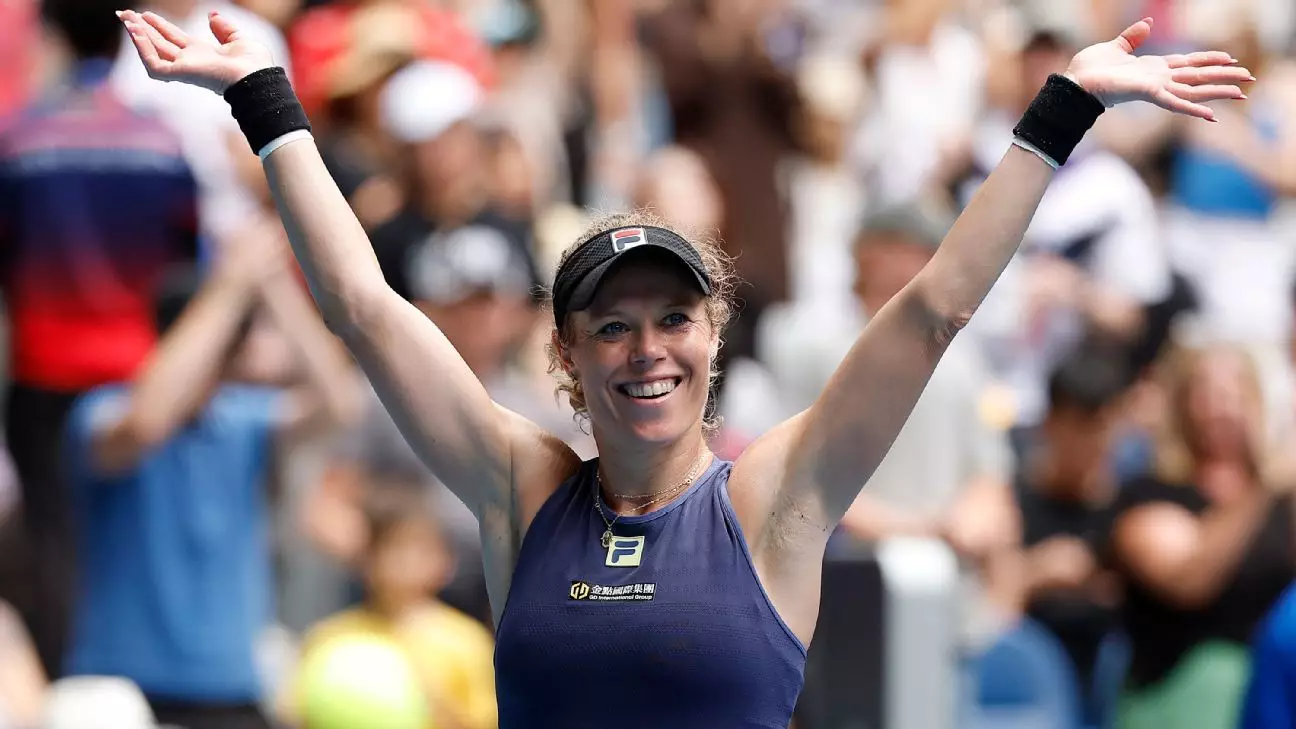In the realm of professional tennis, few events provoke as much excitement and unpredictability as the Australian Open. This year, that unpredictability manifested in the form of Qinwen Zheng’s unexpected exit in the second round, a stark contrast to her stellar performance from the previous season. After a remarkable journey that included reaching the finals in Melbourne and winning Olympic gold, expectations were high for the young Chinese star. However, she fell short against Laura Siegemund, a formidable competitor ranked No. 97, who executed a strategy that left Zheng scrambling. The match culminated with a score of 7-6 (3), 6-3, marking a significant upset in the early rounds of the tournament.
Zheng, who showcased her potential throughout 2023, was clearly rattled during the match, struggling with her focus and execution. She faced a multitude of challenges, not least of which was a time penalty that seemed to disrupt her rhythm. Her need to change shoes early in the second set compounded her difficulties. Zheng’s comments after the match reveal an athlete grappling not only with a tough opponent but also with external pressures that impacted her performance. “I feel maybe today is not my day,” she noted, emphasizing the necessity for precise execution in high-stakes moments.
The match was particularly poignant, as it highlighted some pivotal turning points. Zheng’s weak serve that failed to clear the net appeared to stem from her frustration induced by the time warning. “This is my fourth year in the tour, and never happen that to me,” she lamented, indicating a unique and emotionally charged learning experience. Zheng’s situation serves as a cautionary tale for young athletes: sometimes the mental game can be just as challenging as the physical.
In stark contrast to Zheng’s tribulations was Siegemund’s seasoned approach to the match. At 36 years old, she demonstrated that experience is a crucial asset in the world of competitive sports. By attacking aggressively from the opening point, she put Zheng on the defensive, effectively showcasing her tactical prowess. Interestingly, Siegemund has now joined an elite group, becoming one of the oldest players to defeat a top-five seed at the Australian Open in over three decades.
Siegemund’s confidence seemingly stemmed from a desire to prove herself, “I had nothing to lose. I just told myself to swing free,” she said, channeling an attitude that many young players likely aspire to. This contrasting mentality between the two athletes—Zheng’s apprehensive demeanor versus Siegemund’s boldness—highlights how critical mental fortitude is in tennis.
As Zheng processes this initial setback in her 2024 season, the implications of this match might extend beyond mere statistics. While her early exit from the tournament was disappointing, she has the potential to come back stronger. The grit she displayed last season—culminating in her historic feats—serves as a reminder of her capabilities. Lessons learned from experiences like these can be invaluable in an athlete’s developmental arc, serving to enhance resilience and performance in future matches.
Zheng isn’t the only player experiencing this level of unpredictability. Aryna Sabalenka, the reigning champion and No. 1 player in the world, continued her assault on the tournament with a victory over Jessica Bouzas Maneiro. However, it is clear that the path to success is anything but linear; every match and every setback contributes to the intricate narrative of a player’s career.
The Australian Open is a crucible of talent, where players—both seasoned veterans and rising stars—jockey for position amidst high expectations and intense pressure. For athletes like Zheng, the balance between triumph and defeat can often hinge on unexpected events, such as time penalties or moments of self-doubt. Siegemund’s victory serves not only as a testament to her enduring skill but also as a reminder that in tennis, no match is ever truly certain.
As the tournament progresses, fans will undoubtedly keep a close eye on how both established champions and young prodigies navigate the joys and challenges of the sport, weaving a complex tapestry of resilience, determination, and, ultimately, the relentless pursuit of greatness.

